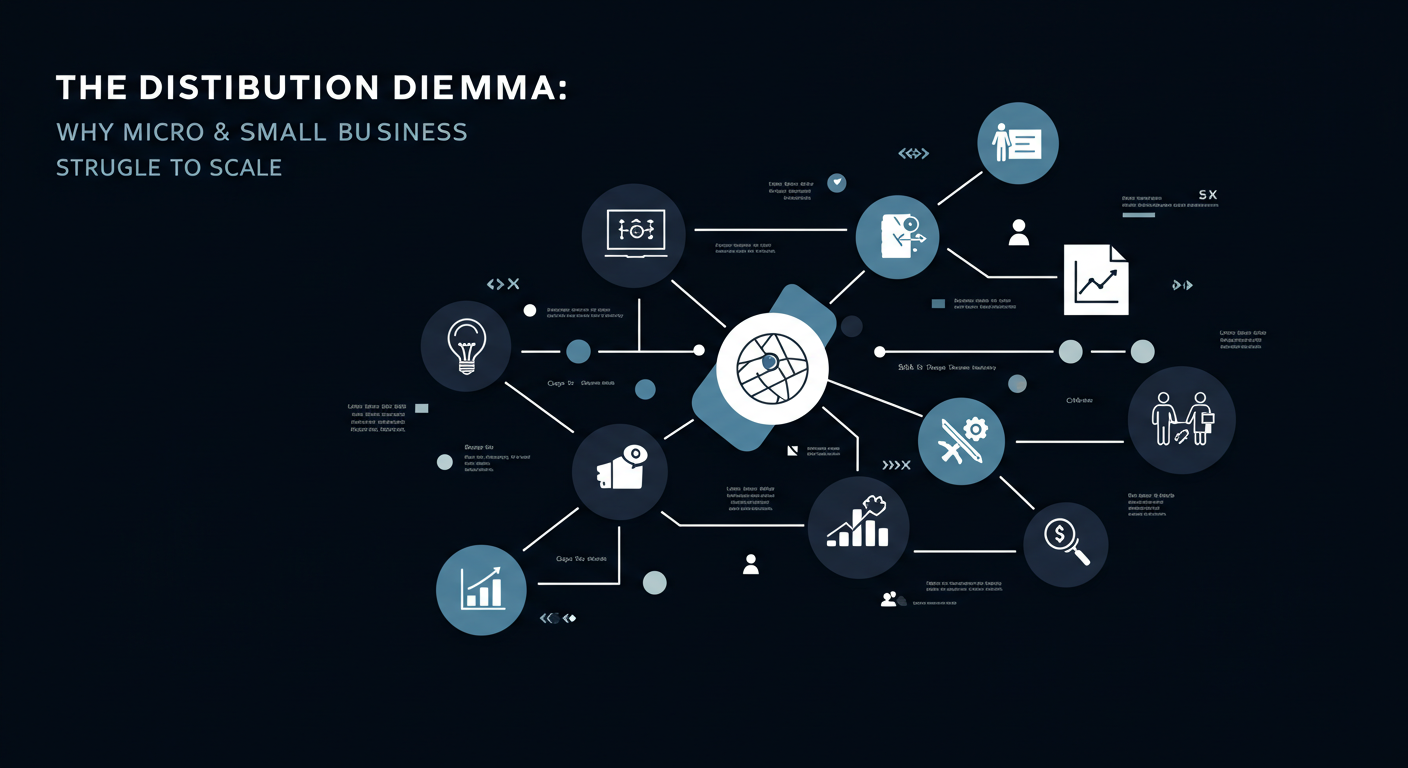Every entrepreneur dreams of building a business that thrives, expands, and dominates its market. But let’s talk about the elephant in the room—distribution. It’s the silent killer of many promising micro and small businesses, especially in emerging economies.
The Harsh Reality of Distribution
You can have the best product, the most innovative service, and even a solid customer base—but if your distribution isn’t on point, your business will remain stuck.
For many small businesses, distribution is a bottleneck that stifles growth. Traditional retail space is expensive, logistics networks are underdeveloped, and big players control major supply chains, leaving little room for small businesses to maneuver. Worse still, some businesses don’t even realize that their distribution strategy is their biggest problem.
The Cost of Poor Distribution
- Limited Market Reach: If your product is difficult to access, customers will move to competitors who make purchasing easier.
- High Logistics Expenses: Small businesses lack economies of scale, meaning higher transportation and warehousing costs.
- Dependence on Middlemen: Many micro businesses rely on distributors who take large cuts, eat into profits, or dictate unfavorable terms.
- Cash Flow Constraints: Delayed deliveries, unpredictable inventory levels, and inefficient logistics often result in poor cash flow.
Who Controls Distribution?
Big corporations and well-established brands often have the power to dominate distribution channels. They negotiate exclusive deals, have established warehousing networks, and leverage bulk shipping discounts that small businesses simply cannot compete with.
Take the FMCG industry, for instance. Large brands dictate shelf space in supermarkets, making it difficult for smaller brands to get visibility. In e-commerce, platforms charge high commissions, and paid visibility is a necessity. The playing field is far from level.
The Digital Advantage—But Is It Enough?
Many businesses turn to e-commerce and social media as an alternative, hoping that digital platforms will democratize distribution. While it’s a step in the right direction, challenges still exist:
- High Advertising Costs: Getting seen online requires significant marketing investment.
- Logistics Barriers: Managing deliveries, returns, and last-mile fulfillment is still a headache.
- Customer Trust Issues: Many consumers still prefer to see and feel products before purchasing, especially in certain industries.
Breaking the Distribution Barrier
So, how can micro and small businesses beat the odds? Here are a few game-changing strategies:
- Leverage Local Networks: Partner with local retailers, co-working spaces, and community markets to get your product into customers’ hands.
- Own Your Distribution Channels: Invest in direct-to-consumer strategies, whether through a well-optimized website, WhatsApp commerce, or subscription-based models.
- Utilize Third-Party Logistics (3PLs): Instead of handling logistics yourself, outsource to firms that specialize in efficient deliveries.
- Negotiate Smartly: If working with distributors, fight for better margins and terms—don’t just accept what’s offered.
- Maximize Social Commerce: Platforms like Instagram, TikTok, and WhatsApp offer an opportunity to engage directly with customers without relying on traditional retail.
At the end of the day, your business is only as strong as your ability to deliver your product to customers effectively. It’s time to stop seeing distribution as an afterthought and start treating it as a core pillar of business strategy.





